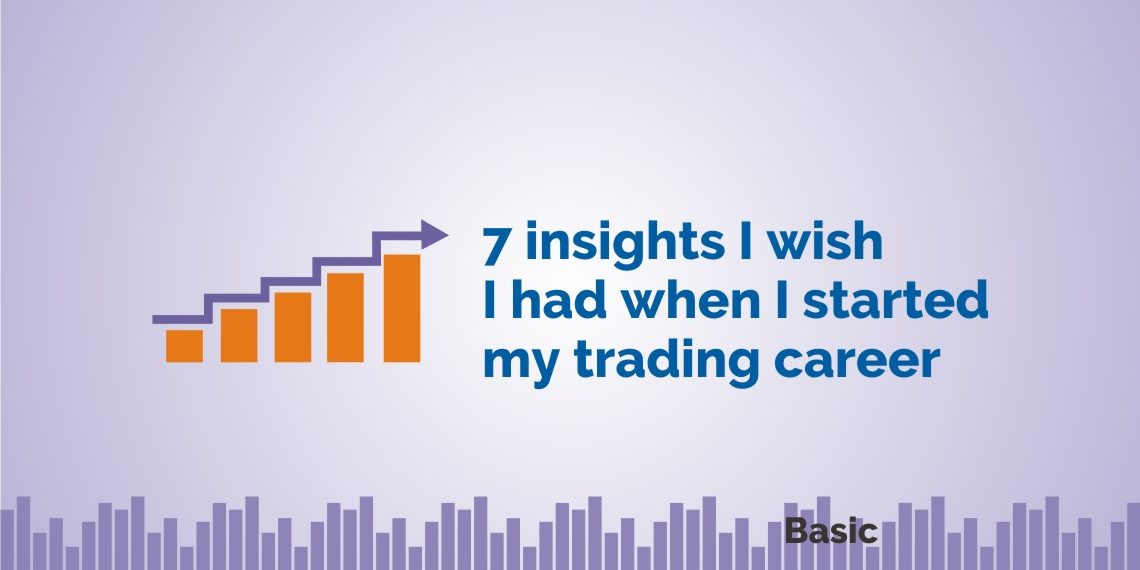Hindi: आप इस लेख को हिंदी में भी पढ़ सकते है|
Sometime I really wish that I could travel back in time 15-20 years ago and teach myself whatever lessons or trade secrets I learnt over the years in the hard way. The market which was present back in the early 2000 wasn’t really matured and it was comparatively easier to make profits from trading. The reasons for the same could be less public participation and lack of appropriate knowledge with the trading and investment community.
I really don’t want others to go through the problems and the difficulty which I faced over the years may be due to lack of appropriate content or a proper guide. So here are the 7 stock trading I think you should know when you start your trading career-
1. Lifestyle of most traders is a big myth
It is quite common for a new entrant in the market to be highly motivated by the mythical lifestyle of famous traders. New traders and investors may start their trading career with a very wrong perceptions about ease of making money in trading.
To be fair, trading is one of the most ruthless professions, where a trader has to survive against all odds. Here he/she has to compete with the best minds in the world and the number of traders who succeed out of these competitions is very less. Hence it is always good to enter the profession with realistic expectations and it is also important to dedicate oneself for the hard work that is absolutely a must for success.
Also it is important to note that in media, many advisors/experts would claim that money making in the market is very easy and they help clients to make money. There can be no bigger misperception than this in the market, as anyone who knows the secret of consistent money making, would keep this to himself. Actually, most of the advisors make more money by advisory fees, brokerages or sale of trading systems than from trading.
2. Do not try to outsmart the market as the odds are against you
It is very common with most traders as once they have few right trades, they usually become little overconfident and start to think they can outsmart the market. This is not the way one should trade if he/she wants to have a long and successful trading career.
Famous economist John Maynard Keynes once said
“The market can remain irrational longer than you can remain solvent.”
In reality, the market is very big and ruthless compared to an individual trader. In spite of all the supporting indicators, favourable news flows, any trade can go wrong. Hence it is always important to respect the vastness of the market and accept individual limitations. That is why one should book his or her loss if his/her trade goes wrong and not try to trade against the trend of the market in most of the situations.
3. The magic of compounding is in the long term
A successful trader should know how to distinguish in between a short term trading and long term investment. It is fair for a trader to focus significant proportion of his capital to short term trading.
The chart shows the value of Rs 1000 compounded at various rate of return over time.
Compounding works brilliantly in the long run and if you look at the long term returns generated by various asset class, equity always seem to have outperformed in the long run.
4. Stay away from trading tips especially from people who are smarter than you
There are lot of people who often have a tendency to replicate the stocks bought by the renowned traders or investors in the market. But the problem is that soon after the noise, the stock enters into a correction and thus trapping the traders who entered the stock based on the noise.
Moreover, you know about the entry of these smart people from the bulk and block deal section but you cannot trace their exits. So instead of simply copying their stock ideas, you should rather do your own research before taking any position. If you cannot make your own decision, it’s better to handle your funds to the professionals via mutual fund or PMS route.
Also read: Technical Chart Platforms – A Boon for Indian Market Participants
5. Do not let single trade to decide your fortune
Do not rely on a single trade to make your fortunes; at the same time also do not allow a handful of trades to ruin your career as a trader. Stock trading is all about discipline. Successful traders have to build their accounts slowly and steadily by making more than 50% correct trades and booking more profit per trade on average than the loss they make on an average on their losing trades.
Hence this is time taking and granular process. Do not try to become rich overnight, as you may in all probabilities go broke in doing so. It is not about being right or wrong on any particular trade. Rather, it is about making higher % of right trades. Hence, do not put unnecessary pressure on your mind if you get a streak of wrong trades. Step back, relax your mind, review your stock trading and decision making system and get back to your trading desk.
You may do NSE Academy Technical Analysis course to learn various aspect of Technical Analysis and to also learn trading strategies to trade in the real market.
6. Emotions and confirmation bias may prove fatal
We human beings are creatures of emotions but when it comes to trading, getting emotional may be futile. So in case of a series of profitable trades, you shouldn’t be over-excited or become over confident or become depressed in case of loss making trades.
Any business decision may have binary outcome so instead of focusing too much on getting wrong or right trades, be pragmatic in terms of risk-reward ratio. Try to cut your losses short and also do not be very greedy in booking your profits as the volatile nature of the stock trading may be problematic and lead you to problem.
Confirmation bias can create problems for traders or investors. When analysing a stock, someone might look for information that supports his or her beliefs about that trading idea and fails to see information that presents different ideas. The result is a one-sided view of the situation. Confirmation bias can thus cause traders to make poor decisions.
This phenomenon is a source of investor overconfidence and helps explain why the bulls tend to remain bullish, and the bears tend to remain bearish regardless of what is happening in the market. Confirmation bias helps explain why markets do not always behave rationally.
7. For newbie’s, focus shouldn’t be on making money rather on acquiring knowledge
For naive traders, getting a series of successful trade may be mere beginner’s luck so don’t be too excited and become greedy to make quick profits. The reason being that once you start making money, the zeal to learn vanishes over the period in most cases.
When there is a change in market dynamics, the tactics might not work for you. Then instead of getting depressed, the approach should be to acquire knowledge and don’t shy away from doing experiments in stock trading.
Bottom-line
Patience and discipline are the key to any traders and those who manage risk the best generally are the ones who win in the long term. The weakest part of any trading method is the trader executing it and not the setup. It’s important to understand the psychology before executing your trade instead of blindly looking at the pattern.
Another very important aspect in stock trading could be instead of jumping into the trade in whatever you see rather doing less activity generally leads to more profits and smaller positions sizes leads to better odds of keeping profits over the long term.






